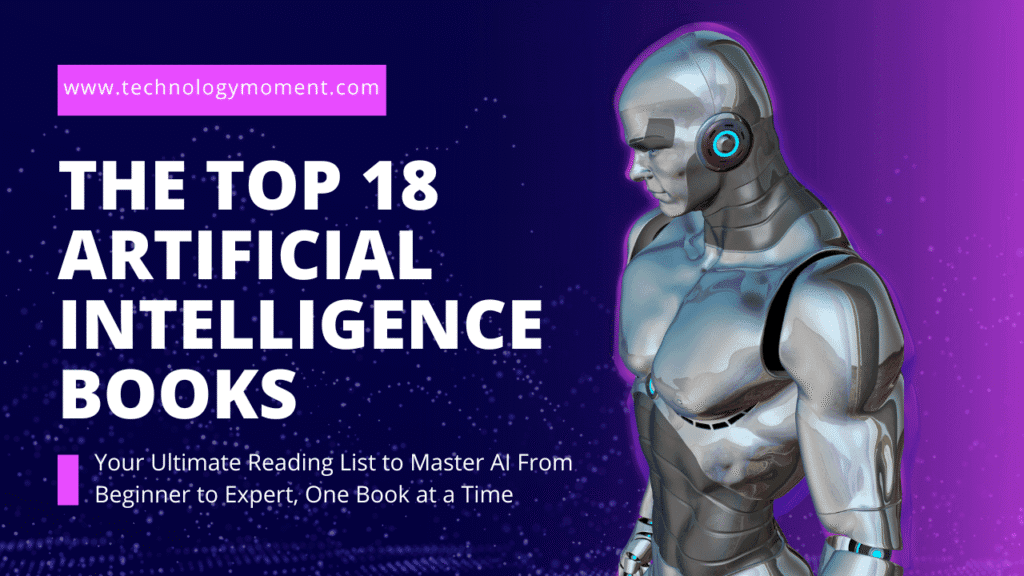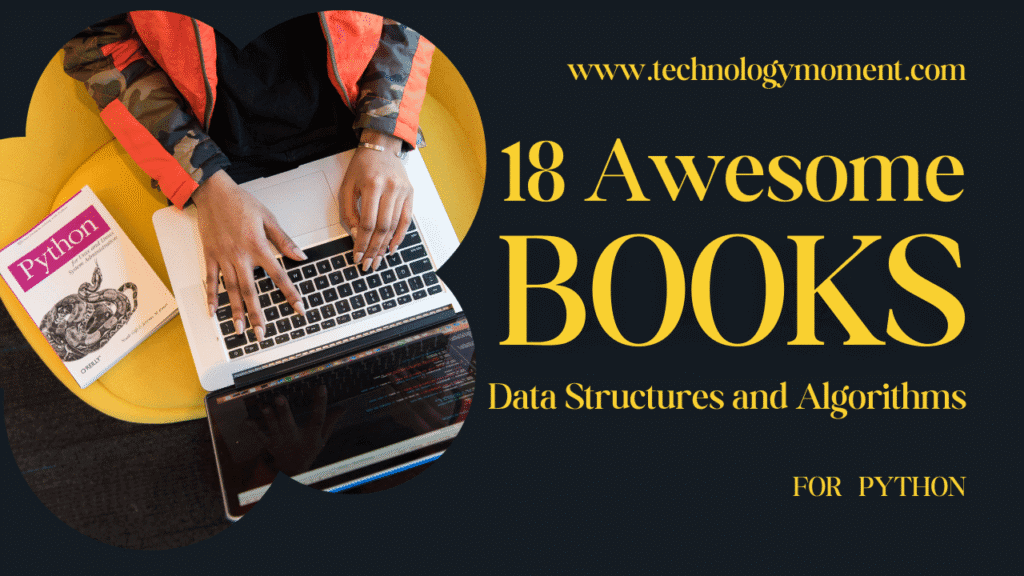Welcome to Technology Moment, your ultimate destination for discovering the latest trends, tools, and tips in the tech world. Whether you’re a curious beginner, a seasoned developer, or an enterprise architect, we’re here to help you stay ahead of the curve in this rapidly evolving digital age.
In a world where cloud computing powers everything from your favorite apps to global enterprise systems, Microsoft Azure stands as a giant. With its vast array of cloud services, from virtual machines and AI tools to hybrid cloud environments and DevOps pipelines, Azure has quickly become a must-know platform for anyone serious about tech. With hundreds of services, tools, certifications, and best practices, where do you even begin?
That’s exactly why we created this guide.
At Technology Moment, we believe in breaking down complex tech topics into digestible, actionable, and user-friendly content. And today, we’ve done just that by compiling the ultimate list of the best Microsoft Azure books for every skill level—beginner to expert. Whether you’re just dipping your toes into cloud computing or you’re preparing for a high-level certification like AZ-305 or diving deep into Kubernetes and Azure DevOps, we’ve got the perfect reading recommendation for you.
Each book we recommend in this blog post has been carefully chosen based on real user reviews, technical depth, relevance in 2025, and hands-on usefulness. We don’t just throw titles at you—we tell you why each book matters, who it’s for, and how it can help you grow your cloud skills, land a better job, or build something amazing.
So if you’ve ever asked yourself:
- “Where do I start with Microsoft Azure?”
- “Are there any advanced resources for Azure architecture?”
- “How can I go from beginner to expert without wasting time?”
Imagine walking into a tech job interview where the hiring manager asks if you’re familiar with cloud computing. You smile and respond confidently, “Yes, I’ve been working with Azure for a while now.” That confidence doesn’t come out of thin air—it comes from knowledge and hands-on experience. And when it comes to Microsoft Azure, there’s no better way to start (and scale up) than with the right books.
But here’s the thing—there’s so much content out there that it can be overwhelming. Do you start with YouTube videos? Online courses? Podcasts? All valid options, but nothing beats the structured, in-depth learning you get from a well-written book. This guide is your roadmap to picking the best Azure books based on where you are in your cloud journey—whether you’re brand new, brushing up your foundations, or diving into specializations.
Table of Contents
Getting Started with Azure
Let me take you back to when I first heard about Azure. I was at a tech meetup, sipping stale coffee, when a cloud architect mentioned how he helped migrate a bank’s legacy system to Azure. The way he spoke about scalable VMs, serverless functions, and global redundancy—it sounded like magic. I was hooked.
So, what exactly is Microsoft Azure? In simple terms, it’s Microsoft’s cloud platform offering over 200 products and services—from virtual machines and databases to AI, analytics, and even quantum computing. Azure helps businesses store data, build applications, and run scalable systems—all in the cloud.
What you do need is a clear path, and that’s where understanding the Azure certifications roadmap comes in handy. It’s like a GPS guiding your cloud career. You start with the AZ-900: Azure Fundamentals, and from there, move into associate-level certifications like AZ-104 for administrators or AZ-204 for developers. Eventually, you can specialize with expert-level certs like the AZ-305 or go even deeper into security and architecture.
Many learners try to “wing it” by hopping between random tutorials and hoping for the best. But trust me, starting with the fundamentals, understanding why Azure matters, and following a step-by-step plan will save you time, confusion, and burnout.

Best Azure Books for Beginners
You’re not sure what a resource group is, and the word “subscription” sounds more like Netflix than cloud billing. You, my friend, are in the beginner camp—and that’s the perfect place to start.
A great entry point is “Azure for Beginners” by Adney Ainsley. This book is written with the total newbie in mind. I remember giving it to a friend who had zero IT background. Two months later, she could explain what IaaS and PaaS are without blinking. The book breaks down complex jargon into easy, bite-sized explanations and gives practical examples, like deploying a virtual machine or setting up blob storage.
Jim Cheshire’s “Exam Ref AZ-900 Microsoft Azure Fundamentals“ is yet another great option. This one’s geared toward those who want to knock out their first Azure cert, the AZ-900. It’s the book I used when prepping for the exam, and it saved me hours. What I loved most was how it aligns with the actual exam objectives. You don’t just read; you prepare with purpose.
If you’re more of a slow-and-steady learner, try “Learn Azure in a Month of Lunches” by Iain Foulds. The name says it all—you read one chapter a day during your lunch break, and by the end of the month, you’ve built a solid foundation. The storytelling style makes learning feel less like homework and more like a casual chat with a knowledgeable friend.
The key at this stage is not to rush. Focus on understanding core concepts like what the cloud is, how Azure’s services fit together, and why businesses use it. Don’t worry about mastering everything yet. Just build a foundation you can grow on.
Top Foundation-Level Microsoft Azure Books
Once you’ve got the basics down and passed your AZ-900 (or at least understand what ARM templates and regions are), it’s time to cement your foundation. This stage is like pouring concrete before building a house—you want it solid, reliable, and ready for growth.
The first book I always recommend here is “Azure Strategy and Implementation Guide” by Peter De Tender. This book goes beyond the ‘what’ and gets into the ‘how’ and ‘why’. It’s like having a mentor walk you through the process of aligning cloud tech with business goals. I used it during a project migration, and it helped me see things from a strategic angle—something most tech guides skip.
Michael Collier’s “Microsoft Azure Essentials” series comes next. These books are official Microsoft material and offer in-depth knowledge on different topics—compute, storage, networking, and more. They’re great for getting a broad view of the platform. I’d read a chapter each night before bed, and surprisingly, it didn’t feel like a chore. The real-world examples make abstract concepts stick.
Then there’s “Cloud Architecture Patterns” by Bill Wilder. This one’s a gem if you’re starting to think about designing scalable applications. You’ll learn how to build systems that don’t crash under pressure and grow automatically with demand. This book helped me understand the “why” behind decisions like stateless services and caching, which are critical when you start building real systems in Azure.
At this level, it’s no longer just about learning services. It’s about understanding how to combine those services to solve problems. You’re not just playing with blocks—you’re building skyscrapers.
Must-Reads for Intermediate Azure Users
Once you’ve dipped your toes into the world of Azure and understand the fundamentals, the next challenge is bridging the gap between “knowing the basics” and actually applying them. This is where many learners feel stuck. Maybe you’ve passed the AZ-900 or tinkered with Azure VMs and storage, but now you’re wondering, “How do I build something real with this?”
Take Jake, for example. He started learning Azure during the pandemic, watching tutorials and reading beginner books. After getting his first Azure certification, he landed a junior cloud role. But when his manager asked him to automate infrastructure with ARM templates or deploy a microservice using Kubernetes on Azure, Jake realized he was in deep water. That’s when he picked up “Microsoft Azure Architect Technologies and Design Complete Study Guide” by Haishi Bai. This book is a gem—it doesn’t just prep you for exams like AZ-303 or AZ-304, it walks you through how to think like a cloud architect, not just a user.
Another practical read is the “Azure Cookbook” by Reza Salehi. If you’re someone who learns by doing, this book is like your personal cheat sheet. It’s full of practical, hands-on solutions to common real-world problems. Whether it’s configuring a load balancer, managing Azure AD roles, or automating deployments with PowerShell, it’s got you covered. Think of it as a Swiss Army knife for intermediate users.
Lastly, “Programming Microsoft Azure Service Fabric” by Haishi Bai is where things get more developer-focused. If you’re moving into building distributed applications and want to explore service orchestration, this book helps you not just use Azure, but build on it like a pro.
Advanced-Level Azure Mastery Books
At this level, you’re no longer asking “What is Azure?”—you’re asking, “How can I build resilient, scalable, secure, and cost-effective solutions for enterprise clients?” This is the architect mindset. It’s about solving complex problems at scale.
Let’s meet Priya, a cloud engineer with five years of experience. She was already managing hybrid cloud environments but wanted to take things to the next level—designing systems that could support thousands of users, with high availability and tight security. That’s when “Exam Ref AZ-305 Designing Microsoft Azure Infrastructure Solutions” by Ashish Agrawal became her go-to guide. This book isn’t just for passing the AZ-305 exam; it pushes you to think like a solution architect. It covers governance, network design, data solutions, and even disaster recovery. It’s like sitting beside a senior cloud consultant and learning from their experience.
Then there’s “Designing Distributed Systems” by Brendan Burns, one of the co-creators of Kubernetes. It’s not Azure-specific, but it teaches you patterns and strategies crucial for anyone building modern cloud-native applications. Azure’s world is full of containers, service meshes, and event-driven systems—and this book connects the dots.
And let’s not forget “Microsoft Azure Security Infrastructure” by Yuri Diogenes. Security is no longer optional—especially with cloud. If you’re tasked with protecting an enterprise environment, you’ll love the deep dives into identity, compliance, and threat protection. This book will make you paranoid in the best way possible—constantly thinking about least privilege, Zero Trust, and attack surfaces.
Books for Azure Experts & Specializations
At this stage, you’re looking to sharpen your edge. Maybe you’ve chosen a specialization—security, DevOps, data engineering, or containers—and now you’re chasing mastery. You don’t need another intro to Azure—you need guides written by people who live and breathe niche topics.
Take “Zero Trust Security with Microsoft 365” by Paul Huijbregts. While it’s technically focused on Microsoft 365, it closely ties into Azure AD, conditional access, and hybrid identity—critical elements of any Azure security strategy. Imagine you’re working with a healthcare client who needs airtight access policies across locations and devices—this book will give you the mindset and tools to pull it off.
If you’re leaning into containerization, then “Kubernetes on Azure” by Steve Buchanan is a must. His team decided to migrate all legacy apps into microservices using AKS (Azure Kubernetes Service). Sounds exciting—until he hit issues with autoscaling, Helm charts, and persistent storage. This book walked him through best practices and taught him how to keep those container clusters humming smoothly.
And for those diving into real-world deployments, “Implementing Azure Solutions” by Florian Klaffenbach is almost like reading post-mortems of successful (and sometimes failed) cloud projects. It’s full of practical advice on what really works in the field. This isn’t theory—it’s battlefield knowledge.
How to Choose the Right Azure Book for You
Choosing the right Azure book isn’t just about your current knowledge—it’s about where you want to go. Are you aiming to become a cloud developer, a security engineer, or maybe a solutions architect?
Here’s some practical advice:
Start by asking yourself what problem you want to solve. Or are you struggling to implement something in your job right now? If it’s the former, look for books tied to certifications like the AZ-900, AZ-104, AZ-305, or AZ-500. These are often structured, exam-focused, and give you a roadmap.
If you’re more of a hands-on learner, like Sam who hated theory but loved building stuff, then opt for books that are cookbook-style or project-based. These give you instant gratification—you build while you learn.
Also, consider your learning style. If you like narrative and explanation, look for authors like Haishi Bai or Brendan Burns. They’re excellent at telling stories while teaching concepts. If you want fast results, the Microsoft Press Exam Ref books are concise and to the point.
Finally, don’t forget to mix and match. Sometimes the best approach is using a foundational book for structure, and a cookbook or advanced title for depth.
In short, think of Azure learning as climbing a mountain—you need the right gear (books) for each stage. Don’t take expert-level gear on a beginner hike. And once you’re nearing the summit, switch to tools built for professionals.
Conclusion
Let me tell you a quick story about Raj, an IT support technician from a small town in India. Raj had always felt stuck in his career—doing routine tasks, repeating the same troubleshooting scripts day in and day out. But one day, he stumbled upon a used copy of “Learn Azure in a Month of Lunches” at a local bookstore. Out of curiosity, he bought it and started reading a chapter each day during his lunch break.
Fast forward 12 months—Raj is now working remotely for a US-based tech company as a certified Azure Administrator. What changed? He found the right learning resource, committed to understanding cloud fundamentals, and followed through. That’s the essence of what this guide is trying to communicate. The books we discussed aren’t just stacks of paper with technical jargon—they’re your mentors in print.
So, before you buy your next coffee or binge another Netflix show, ask yourself: What if I spent that time with a book that could change my career? Azure is more than just a tech skill—it’s a ticket to future-proofing your profession.
Pick the book that speaks to your level. Start with 20 minutes a day. Build momentum. And watch as your cloud journey begins to unfold, one page at a time.
FAQs
Which Azure book is best for complete beginners?
Let’s imagine you’re Sarah—no tech background, just an ambition to get into cloud computing. You’re probably overwhelmed with terms like “virtual machines,” “resource groups,” or “ARM templates.” The perfect starting point for someone like you is “Exam Ref AZ-900 Microsoft Azure Fundamentals” or “Learn Azure in a Month of Lunches.” These books break things down in plain language. Think of them like your friendly tech-savvy cousin sitting beside you, walking you through everything without making you feel dumb. You’ll go from zero to confident in a matter of weeks.
What’s the best way to study for Azure certifications?
Studying for Azure certifications isn’t about cramming like you’re prepping for a high school final. It’s more like preparing for a marathon. Start with a structured book like “Microsoft Azure Administrator Exam Ref AZ-104” and then supplement it with hands-on labs using Azure’s free tier. Create a simple web app, build a virtual network—make your study real. Learning by doing is 10x more effective. And remember: don’t rush. Understand why something works, not just how to click through it.
Are Azure books better than online courses?
Both have their strengths. Online courses are great for visual learners who need to see someone explain concepts on-screen. But books offer depth—you can reread, highlight, and absorb at your own pace. Think of books as your detailed map, and courses as the guided tour. Ideally? Use both. Read a chapter, then watch a video demo of that concept. The combo works wonders.
How long does it take to master Azure?
The word “master” can be misleading. There’s no finish line because Azure keeps evolving. But to get job-ready for a role like Azure Administrator or Developer, 3–6 months of consistent study can do the trick. Take Priya’s example—she committed just one hour a day after work, using books like “Azure Cookbook” and “Microsoft Azure Architect Design.” Within four months, she passed two certifications and got a 40% salary bump.
Is Azure good for developers or IT professionals?
Here’s the beautiful part: Azure isn’t biased. Whether you’re a developer, an IT admin, or even a data analyst, there’s a place for you. Developers can dive into Azure DevOps, Functions, and App Services. IT pros thrive with VMs, Networking, and Security. Even AI enthusiasts can leverage Azure Machine Learning. A developer might lean toward books like “Programming Microsoft Azure Service Fabric,” while an IT admin might benefit more from “Microsoft Azure Security Infrastructure.”
The Azure universe is vast—but it’s also welcoming. Pick your lane, grab a book, and start exploring.













